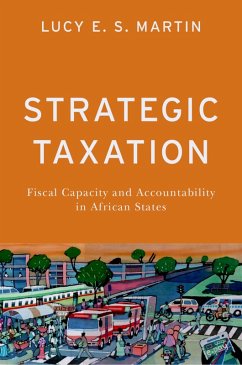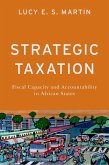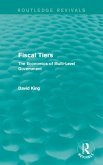Across the developing world, governments still lack the fiscal capacity to fund critical public goods, alleviate poverty, and invest in economic development. Yet, we know little about how to effectively build strong states in these settings. This book develops and tests a new theory to explain why fiscal capacity in African states is low. Drawing on work in psychology and behavioral economics, this book argues that taxation leads citizens to demand more from leaders as they seek to recover lost income from taxation. It then argues that governments' willingness to tax will depend on the extent to which they can satisfy citizens' demands while maintaining rent extraction. Rent-seeking leaders of low-capacity states will strategically underinvest in fiscal capacity in order to avoid the higher demands they face under taxation. Contrary to many existing theories, Martin shows that this can actually lead to lower taxation in democracies compared to autocracies, as citizen accountability demands pose a bigger threat to rulers. The book uses multiple empirical approaches to test the theory. Laboratory experiments in Uganda and Ghana, combined with Afrobarometer data, demonstrate that taxation increases citizens' demands on leaders. Global cross-national panel data show that democracy can actually lead to lower taxation in low-capacity states. When taxation is sustainable, however, it is associated with better governance. Case studies in Uganda, based on the author's own fieldwork and original survey data, provide additional support for the theory. These findings provide new framework for understanding the challenges to building state capacity, especially fiscal capacity, in modern developing countries.
Dieser Download kann aus rechtlichen Gründen nur mit Rechnungsadresse in A, B, BG, CY, CZ, D, DK, EW, E, FIN, F, GR, HR, H, IRL, I, LT, L, LR, M, NL, PL, P, R, S, SLO, SK ausgeliefert werden.









